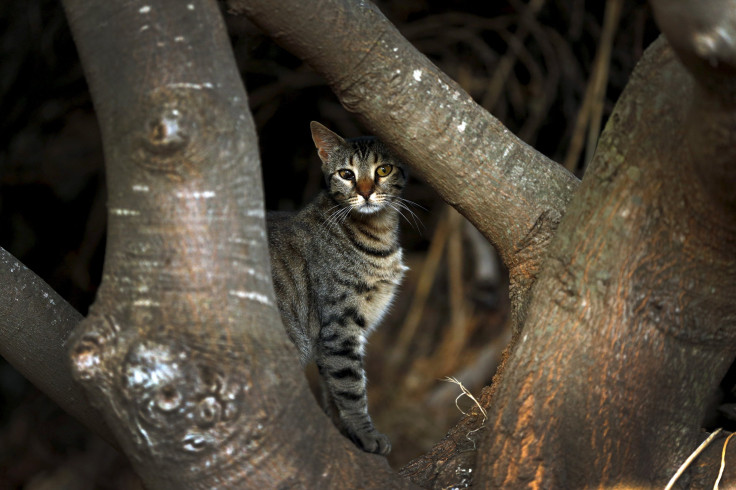Study Shows How Certain Chemical and Parasite Stop Mice From Avoiding Cats

A recent study shows that there is a hidden weapon in cats’ arsenal which makes their prey -- in this case, mice -- vulnerable to their attacks. Results presented at the Society for Experimental Biology’s conference, which took place on June 27-30 in Prague this year, showed that mice exposed during early stage of development to cats’ urine end up not avoiding the scent later on in life, making them easy target for cats.
According to Science Daily, the study was done using mice less than 2 weeks old. While they were feeding on milk, they were also being exposed to the odour, which became a positive reinforcement of sorts, said Dr Vera Voznessenskaya, a lead researcher in the study. Due to the association, the mice later on did not escape upon smelling cat odour.
The chemical present in the urine, which was responsible for the mice’s reaction, was identified by researchers. They named it L-Felinine. Dr Voznessenskaya added how the chemical can also stop female mice from being pregnant or decrease the size of the offsprings.
The chemical may stop mice from escaping but it does not stop them from feeling the danger. Mice which were raised smelling cat pee did not flee upon encountering a cat though they produced significantly high amount of stress hormones.
Another study shows that mice infected with a strain of Taxoplasma gondii also lost their fear of cats. Taxoplasma gondii is non-endemic and found all over the world. It can infect most mammals though it can only reproduce inside the bodies of cats and mice. Mice infected with a mild strain of the virus showed permanent changes even after the parasite was gone.
Wendy Ingram, a researcher at the University of Berkeley and one of the authors of the study, speculated that the parasite may have disturbed a part in the mouse’s brain concerned with smell, which was why the odour of cat’s urine did not trigger fear. She also said how the findings, an infection which lead to a permanent change on the host, will further studies on infectious diseases medicine.
For feedback/comments, contact the writer at ailyanaferrer.salumbides@gmail.com.





















